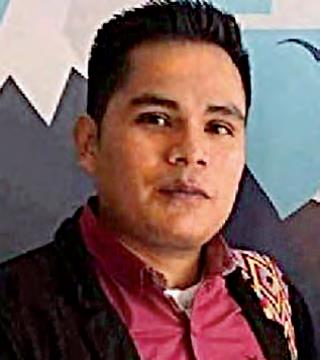This month, we update you on developments in Colombia, Brazil, Venezuela, Chile, Ecuador, Argentina, Peru and Paraguay. There are three live Urgent Actions – two for Colombia and one for Venezuela – and we shall shortly add the case of Gustavo Gatica (Chile) to our portfolio of long-term cases. Amnesty has published the results of its investigation into the probable extrajudicial executions of at least 14 men in Venezuela in January and has called on the Ecuadorian authorities to investigate the facts surrounding the killing of at least 79 prisoners in four prisons on a single day in February.
COLOMBIA

Amnesty International has issued an Urgent Action on behalf of the Association for the Integral and Sustainable Development of the Amazonian Pearl (ADISPA) members, an organization protecting the rights of hundreds of field-workers in the Putumayo region. An armed group called “Border Command” are threatening to forcibly displace or kill them if they do not submit to their control. Please write to the authorities demanding protection for ADISPA. Please send copies of your letter to the Colombian ambassador Antonio José Ardila, 3 Hans Crescent London SW1X 0LN E-mail: elondres@cancilleria.gov.co
Amnesty has issued a second Urgent Action on behalf of Luis González López vice-president of FEDEPESAN, an organization that protects the environment in the Magdalena medio region. Luis González López has received death threats signed by the National Liberation Army (ELN). Since September 2020, armed groups sent at least 5 life threatening messages to the members of FEDEPESAN. We urge the Ministry of Interior to grant FEDEPESAN members collective protection measures consulted and agreed with their members. Please send a copy of your email or letter to the Colombian ambassador.
Colombia Peace reports that the Special Jurisdiction for Peace (JEP) issued an order to investigate and prosecute those responsible for extrajudicial killings, called “false positives.” This involved security forces personnel killing civilians, then presenting the dead as guerrillas killed in combat, in order to earn rewards. The JEP found that the security forces had killed 6,402 civilians, twice the number previously reported, between 2002 and 2008.
The JEP has also charged eight former leaders of the FARC guerrillas with war crimes associated with the kidnapping of 21,000 people, torturing and killing some of them. Among the accused is Rodrigo Londoño (known as Timoshenko), leader of the FARC’s political party, Comunes, and two of their Senators. The hostages included soldiers, police officers and politicians. Some were held for years, sometimes chained to trees, and freed after ransoms were paid or they were rescued. Others were killed or died in captivity.
The UN’s Committee on the Elimination of Racial Discrimination has called on the Colombian government to ensure protection for indigenous peoples and communities of African descent against the violence that still persists in the context of the armed conflict; ensure protection from forced displacement; intensify its efforts to prevent and eliminate the recruitment of indigenous children and children of African descent by non-State armed groups; and ensure that the risk reports issued by the early warning system are duly taken into account by the relevant authorities.
A six-hour webinar presented by President Duque and 22 members of his government outlined their plans to integrate 6.6 million people in 35% of the country formerly controlled mainly by FARC guerrillas. They are bringing roads, bridges, solar energy, natural gas, water treatment plants, schools, medical clinics, technical advisors and funding to substitute crops and livestock for illicit crops such as coca, social services, training for local government and justices to these rural communities. Duque said that this would take 15 years and was ‘irreversible’. If they achieve their objectives, this promises to bring the State to rural regions where, due to their isolation from cities and towns, armed groups act with impunity.
BRAZIL

Isac Tembé, history teacher of the Tembé indigenous community in Amazonia, killed by military police 12 February 2021Amazon Watch reports that Isac Tembé was shot dead by a military policeman on his land in the Alto Rio Guama Indigenous Territory, in the Amazonian state of Pará. According to the Tembé-Theneteraha people, Brazil’s military police serve as private militias defending the interests of farmers and ranchers that are illegally occupying areas of the Tembé Indigenous Territory [Read more…]



